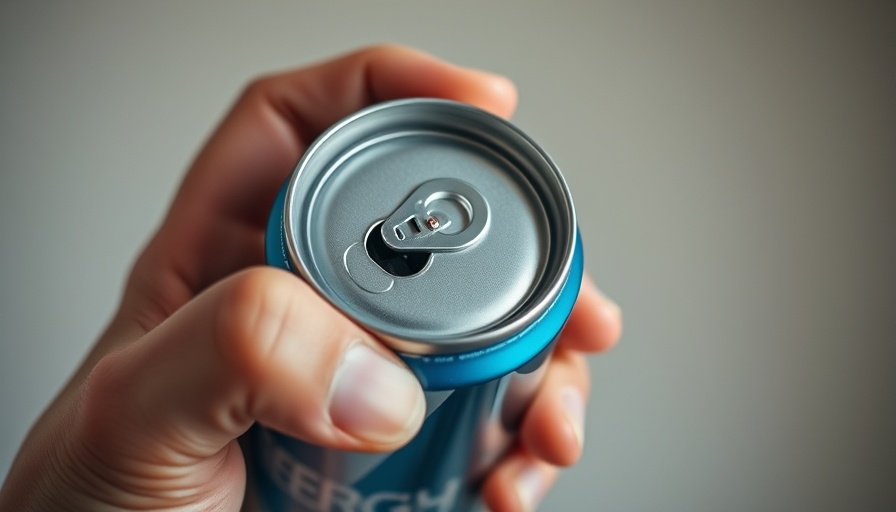
Understanding Energy Drinks: Are They Worth the Buzz?
In recent years, energy drinks have become increasingly popular, particularly among busy professionals and students seeking a quick boost. However, while they can offer a temporary energy surge, the consumption of these beverages can lead to serious health risks. It’s essential to understand what these drinks do to your body and the potential side effects associated with regular intake.
Juggernaut of Caffeine: How Much is Too Much?
Many energy drinks contain high levels of caffeine—often exceeding the recommended daily intake. Excessive caffeine consumption can lead to anxiety, insomnia, and increased heart rates. Patients and healthcare professionals alike must be aware that just one or two cans can greatly affect heart health, raising concerns especially for those with pre-existing conditions like hypertension.
Blood Sugar Levels: A Quick High, Then a Crash
Energy drinks are often packed with sugar, leading to rapid spikes in blood sugar levels. This can especially be detrimental for individuals managing diabetes. Rather than relying on these drinks for energy, consider nutrient-rich foods that provide lasting stability, like whole grains and proteins.
Stomach Upsets: Not Just a Afterthought
Many people overlook the gastrointestinal impact of energy drinks. Ingredients like taurine and ginseng can cause stomach cramps and diarrhea. If you’re experiencing regular stomach issues, it could be time to reassess your consumption of these beverages.
A Heartfelt Concern: Impact on Cardiovascular Health
Regular consumption of energy drinks can lead to heart problems. There is evidence suggesting they increase the risk of arrhythmias. Patients should engage in discussions with their healthcare providers to evaluate heart-healthy lifestyle changes, such as incorporating superfoods for health and adopting a heart-healthy diet.
Finding Healthier Alternatives: Energizing Naturally
Focusing on clean eating and embracing natural energy boosters can significantly improve overall well-being. Foods like nuts, fruits, and dark chocolate are excellent sources of energy with lower risks. Therefore, for individuals curious about how to boost energy naturally, exploring these alternatives can lead to healthier choices.
The Bottom Line: Make Informed Choices
As healthcare professionals, it's vital to help patients understand the ramifications of regularly consuming energy drinks. Share insights about balanced nutrition and holistic health that encourage alternative energy sources, ensuring they make informed choices about their health. If you have any questions or concerns, feel free to call us at 984-238-6164 or email us at tom@mywellnesstrain.com.
 Add Row
Add Row  Add
Add 




Write A Comment